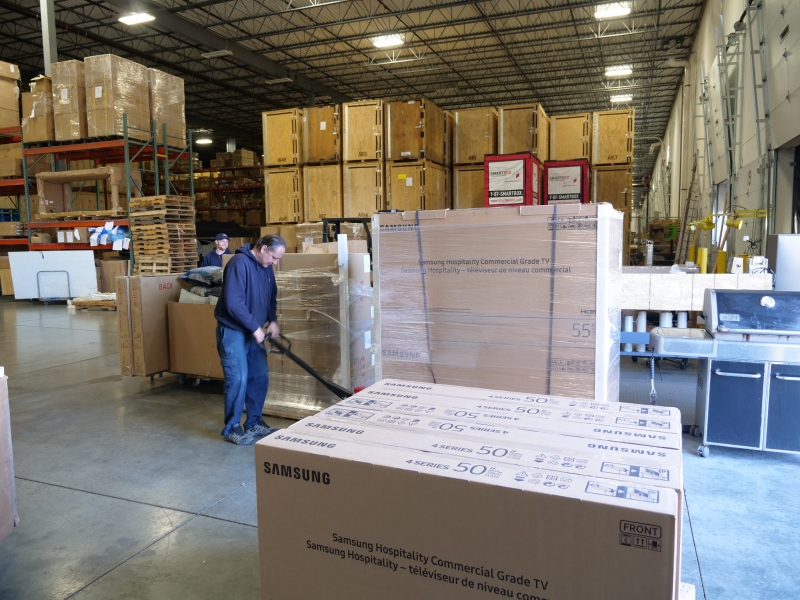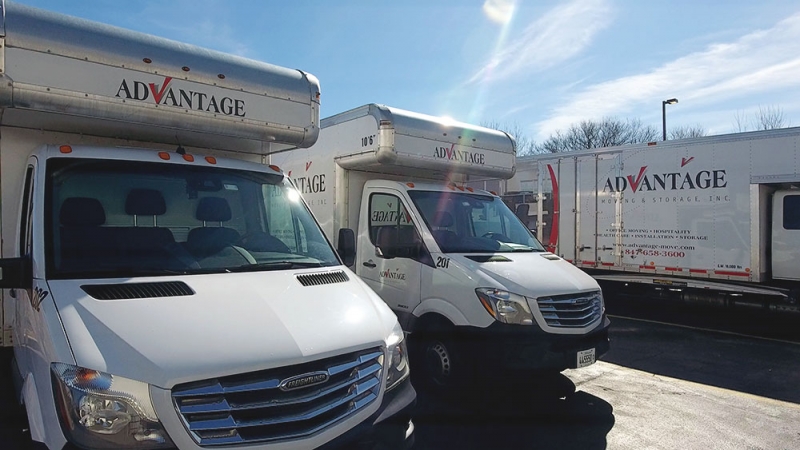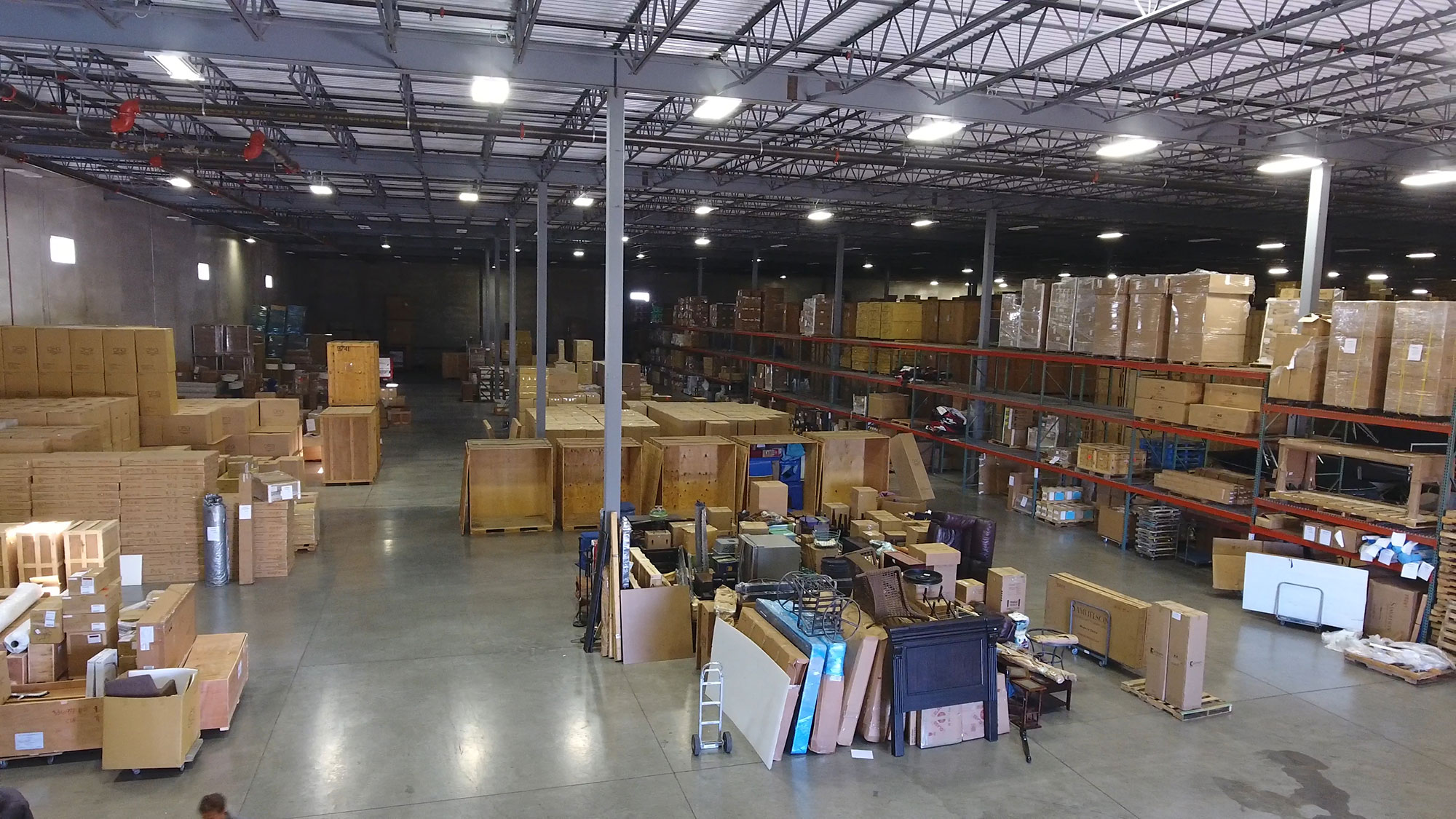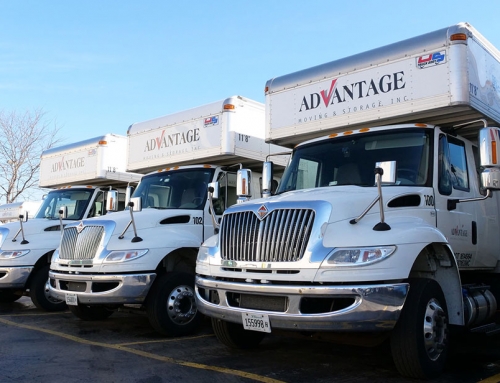Whether you’re moving your business down the street or taking it to a brand new state, moving insurance is certainly something you’ll want to consider. The commercial moving process can be stressful enough, so knowing that your items are protected can go a long way in giving you peace of mind throughout the move. In this post, we’ll take a look at what you should know about moving insurance, as well as some of the different types that are offered to those taking their business on the road!

What:
Before getting into the details, it’s important to note that moving insurance isn’t actually insurance. Instead, moving companies offer what is called valuation. Valuation functions like insurance: the moving company ensures compensation for your belongings in case of damage or loss. Ultimately, valuation functions the same way as insurance.
However, a recent post from Moving.com highlights the fact that not EVERYTHING is in the back of your truck will fall under valuation coverage…
For instance, if anything happens to your items outside of your mover’s control, there is less of a chance you’ll be properly compensated. A few other examples of what can limit a mover’s liability include:
- Packing your own boxes, instead of hiring your movers to do it. According to the FMCSA (Federal Motor Carrier Safety Administration), “if articles you pack are damaged, it may be more difficult to establish your claim against the mover for the boxes you pack.”
- Damage to goods caused by an “Act of God” (read: mother nature), such as a fire, hurricane, earthquake or tornado.
- Failing to let your movers know (in writing) about any items of extraordinary value prior to the move.
- Failing to report loss or damage to items promptly after the move. Usually customers have nine months to file a written claim but check with your moving company for details.
- Packing “perishable, dangerous or hazardous materials in your household goods without your mover’s knowledge,” according to the FMCSA.

What it Covers:
What your moving insurance covers will depend on the specifics of your policy. In general, though, moving insurance covers any damage done to business related items while in transit (and possibly, storage). That means anything from an earthquake to accidental breakage – it’s all covered. Trusted Choice claims that most moving insurance policies provide coverage for the actual depreciated value of the belongings, while others let the customers pay more for replacement cost coverage.
Types:
Navigating which type of insurance (or valuation coverage) is right for you can be a bit confusing. Once again, we’ll look to “Moving’s” recent breakdown.
All interstate movers are required by Federal law to offer two liability options to customers: Released Value Protection and Full Value Protection. Here’s a quick synopsis below.
Released Value Protection:
Released Value Protection is automatically included in the cost of your interstate move. The federal mandate for Released Value Protection in interstate moves is 60 cents per pound per item. In other words, if your 10 pound valuable is damaged during the move, the item will be weighed and then multiplied by .60 cents (.60 cents x 10). This number ($6) would be the dollar amount that the moving company is liable for, regardless of how much the item originally cost you. While this type of basic coverage won’t cost the customer anything extra (big plus!), it’s considered the bare minimum. For instance, if the movers break your 365 pound refrigerator that originally costs $1,400 to buy, your movers will only be liable for $219 under this basic coverage. Yikes.
For local moves, this type of basic coverage is included in the hourly rate or flat rate as well. However, the minimum amount varies from state to state, so be sure to check with the moving company to inquire about your state’s specific minimum coverage amount for intrastate moves. As an example, the State of New Jersey recently increased its minimum coverage from 60 cents per pound to $1 per pound. While most states still require moving companies to offer 60 cents per pound, this increase in New Jersey’s coverage could spark other states to increase their minimum coverage requirements as well.
 Full Value Protection:
Full Value Protection:
Full Value Protection is the second type of valuation coverage offered by interstate movers. This level of liability offers customers considerably more protection in the case of an item becoming damaged or lost by the movers. However, it is still not as comprehensive as having insurance. Full Value Protection only means that your mover is liable for the current (or depreciated) value of your goods. In other words: a mover will only reimburse you for an item’s actual cash value. So if you purchased a valuable item 10 years before, but its market value is now currently much less (monetarily speaking), the moving company will only compensate you for the item’s current dollar value.
According to the FMCSA, if a mover loses or damages an item during the move, they can do one of three things for you:
1. Repair the item.
2. Replace with a similar item.
3. Make a cash settlement for the cost of the repair or the current market replacement value. This level of liability is sometimes referred to as Actual Cash Value coverage.
The loophole for this type of protection is that movers aren’t liable for “items of extraordinary value,” unless the customer explicitly tells the movers about the items in writing. The FMCSA notes that articles of extraordinary value include items with a value of more than $100 per pound. Think: fine jewelry, antiques, collectibles and china. The cost of purchasing Full Value Protection varies by mover, so be sure to ask your moving company for details.
When it comes to local movers, coverage options vary from moving company to moving company. Many local movers also offer a Full Value Protection option to their customers. Either way – it’s important to discuss all your liability options with the moving company before signing anything.
Which is Right For My Business?!
Determine how much your belongings are worth
Create a comprehensive list of your business belongings. Make sure to include important details like existing damage. Though it might be a pain, taking inventory of your belongings before you move can save you a lot of stress and money down the road.
Do a little math to determine if released value protection is sufficient
Say you estimate your business essentials to weigh a total of 10,000 pounds. If you choose released valuation coverage, your moving company would take on $6,000 of liability (60 cents times 10,000 pounds). Ultimately, if your belongings in total are worth $6,000 or less, it financially makes the most sense for you to stick with the released valuation protection.
Decide if the additional cost of full value protection is worth it
Now say you valued your business essentials at something like $80,000, and $6,000 worth of coverage wouldn’t even help you replace your antique desk. In that case, you may want to purchase full value protection. Even if you pay a $500 premium and have a $1,000 deductible, the cost will be worth it when you have a $1,500 computer on the line. Just make sure you are aware of any extra costs associated with getting coverage for items worth more than $100 per pound (items of extraordinary value).
There are also other variables to consider when deciding what kind of coverage you need, such as how far you are moving and whether you are transporting high-value items like designer shoes yourself.
For questions about moving insurance, and to ensure your items are protected, contact the professionally trained staff at Advantage here to get started!






